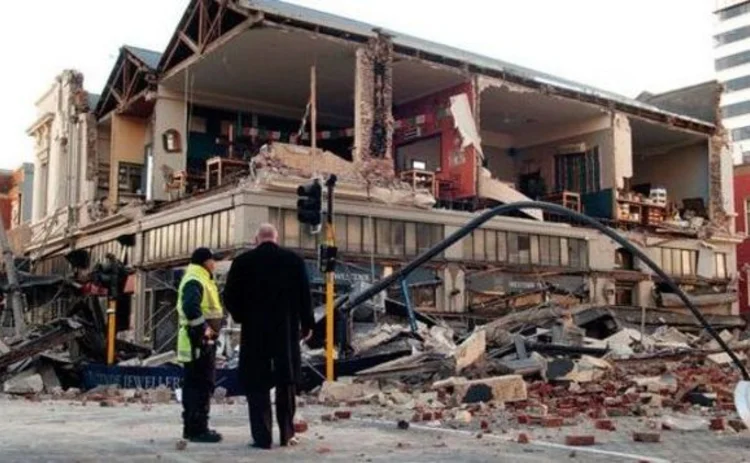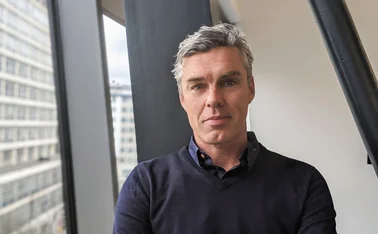
Post Europe: Major loss in the Mediterranean

Natural catastrophes across the Mediterranean made the headlines last year but fires are just as high risk for major losses as Jane Bernstein learns and European insurers also need to keep their eye on new and emerging risks.
Natural catastrophes continued to hit the headlines last year across the Mediterranean. In particular, Windstorm Xynthia caused widespread damage in France and Spain, while Italy's earthquake exposure remains high profile. But while natural catastrophes continue to threaten the Med, they do not represent the only major loss risk - and fires, in particular, are a common challenge for many regions.
Javier Villalba, claims manager for Chartis Europe, Spain, points out that 2010 was particularly problematic in terms of natural catastrophes. He observes that in addition to Windstorm Xynthia in February, there were "atypical cyclonic storms in January", as well as severe rains in the Canary Islands, and a significant snow storm in the Catalonia region in March.
Harsh economy
The problems associated with the high costs of natural catastrophes are also being compounded by the harsh economic environment and a soft market, putting pressure on premiums. But have insurers in Spain reacted to windstorm Xynthia losses by increasing premiums for windstorm damage? Fernando Suarez de Tangil, managing director of Cunningham Lindsey Iberia, explains: "We are in a soft, highly competitive market, affected to a certain extent by the economic crisis, in which premiums are being held stable or even lowered."
There is consensus that natural catastrophes generally result in greater losses than other major loss events. Bev FitzGerald, managing director of FitzGerald Consulting, observes: "It's not just the number of events but also the losses they incur. When they hit somewhere that is built up - a city or industrial site, then between the property damage and business interruption, they are disastrously expensive and need effective management."
Population density
Loïc le Dréau, operations engineering manager for Southern Europe operations at FM Global, goes on to explain that the increasing density of populations and industries in Mediterranean regions means more property is at risk. He adds: "A second aspect to take into consideration is that for commercial businesses the supply chain is increasingly stretched out so the consequences of any losses may be felt beyond the affected sites and impacted geographical area."
Earthquake risks have long threatened parts of Italy. Davide Gilli, director of marketing and sales for XL Insurance in Italy, explains that the vast majority of private properties are able to add earthquake cover to their insurance, for up to 60% of the value of the home. He adds, however, that estimates suggest around 60% of households don't have this cover, either because they consider themselves in low risk areas or because they don't want to pay the extra premium, leaving many without cover.
Fire risks
In addition to natural catastrophes, there is increasing concern over the losses caused by fires.
Mr FitzGerald observes: "A natural catastrophe is obviously going to be far in excess of any individual claim, but we have certainly dealt with very high cost fires and explosions. The frequency of major fire and explosion losses has reduced a lot because of improved risk management. But when they do occur, these losses can be really catastrophic because of the huge business implications - particularly as companies are so reliant now on computerised production lines and ‘just-in-time' supply chain."
Claude Zaouati, general insurance and health director for Aviva France, observes: "We have identified two main causes for fire claims: electrical hazards linked to aging and obsolete electrical installations, and fireplace inserts, often set up without expertise."
Raising awareness
Aviva France has been taking steps to address these issues, including running an awareness campaign on the dangers of installing fireplaces without taking into account issues such as basic isolation norms. Mr Zaouati says this has resulted in a notable decrease in such claims, over the subsequent four years.
Furthermore, there are continuous developments in vital risk management tools such as sprinkler protection. Mr Le Dréau observes that FM Global published new design and installation guidelines for automatic sprinkler protection in 2010: "Thanks to the latest sprinkler technology fires can be detected at their early stage and managed using less water, the consequences are less fire, smoke and water damages."
Industrial risks
Michel Stagnara, managing director of loss adjuster Vrs SERI in France says that major losses in France tend to be associated with heavy industry or commercial storage units. He explains: "We have a very high level of storage in France. One of the major losses of 2009 was in Charles de Gaulle and involved storage in the region of €1bn."
Steps are, however, being taken by both government and insurance industry to mitigate certain risks. Mr Stagnara says: "Risk prevention has greatly improved on production and storage units, which reduced the number of losses in France." He adds, however, that there is room for improvement in terms of managing fire/explosion and terrorism risks to high-rise and administrative buildings such as offices, town halls and museums.
Military support
As far as fire risks are concerned, Mr Suarez de Tangil explains that in Spain, fire-fighting corps are being provided with increasingly modern and efficient resources and techniques. He adds: "An Emergency Military Unit, the UME, has also been set up within our armed forces to collaborate or act directly in major disasters, fires, floods, earthquakes."
Mr FitzGerald praises the improvements made generally in contingency and catastrophe planning and believes insurers are better at managing cats now than they were in the past. There is a view that the industry is also better at assembling and co-ordinating the relevant teams of people following a major loss event. He explains: "It does require a lot of management but I believe that sort of robust project management of cat events with very high levels of expertise involved is likely to increase."
Emerging trends
Of course, in addition to addressing current risks, insurers need to keep a close eye on emerging trends. Mr Suarez de Tangil believes: "The largest claims in the future will probably be for environment and catastrophic losses - we can never do enough to prevent or minimize those loss risks."
While Mr Zaouati emphasises the likelihood of an increase in climate-related risks and says the challenge for insurers will lie in responding to these risks: "In terms of challenges for the future, we would mention the doubling of climate claims costs predicted for the 20 years to come for insurance companies in France, if the current economic and demographic conditions persist."
Keeping ahead
In fact, when asked about potential future causes of major loss, climate change is a common concern among industry experts. Mr Villalba agrees: "Global warming could potentially affect Spain, as well as other Mediterranean countries."
Certainly, while significant steps are being made in mitigating current, high profile risks, the insurance industry also needs to stay some steps ahead of new and emerging risks with the potential to cause major losses.
Only users who have a paid subscription or are part of a corporate subscription are able to print or copy content.
To access these options, along with all other subscription benefits, please contact info@postonline.co.uk or view our subscription options here: http://subscriptions.postonline.co.uk/subscribe
You are currently unable to print this content. Please contact info@postonline.co.uk to find out more.
You are currently unable to copy this content. Please contact info@postonline.co.uk to find out more.
Copyright Infopro Digital Limited. All rights reserved.
You may share this content using our article tools. Printing this content is for the sole use of the Authorised User (named subscriber), as outlined in our terms and conditions - https://www.infopro-insight.com/terms-conditions/insight-subscriptions/
If you would like to purchase additional rights please email info@postonline.co.uk
Copyright Infopro Digital Limited. All rights reserved.
You may share this content using our article tools. Copying this content is for the sole use of the Authorised User (named subscriber), as outlined in our terms and conditions - https://www.infopro-insight.com/terms-conditions/insight-subscriptions/
If you would like to purchase additional rights please email info@postonline.co.uk
Most read
- RSA ‘pragmatic’ on product review as NIG acquisition completes
- Direct Line Group confirms Milliner amid raft of leadership hires
- Wakam looking to exploit ‘unlimited UK potential’ following regulator approval








